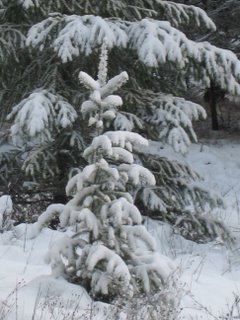A new study from Camille Parmesan, a biologist at the University of Texas - Austin concludes that populations of frogs, butterflies, ocean corals, and polar birds have already gone extinct because of climate disruption. It's the species occupying narrow climate ranges such as the polar regions or mountaintops that are taking the first hits. Polar bears, ring seals, certain varieties of penguins and cloud forest frogs are "showing massive extinctions."
"What surprised me most," Parmesan says, "is that it happened so soon."
Don't give a damn about frogs? You should.
Bill Fraser, a wildlife ecologist with the Polar Oceans Research Group in Sheridan, Montana, observes:
"The planet has warmed and cooled in the past, but never have we seen the type of warming that is occurring now, accompanied by the presence of 6.5 billion people who depend on these ecosystems," he said.We need national leadership on this issue immediately. We won't get it until at least 2008, if then."Whether we want to admit it or not, we are completely and totally dependent on them."



